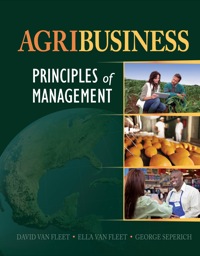Ever since Goldman Sachs global economic analyst Jim ONeill introduced the acronym in a 2001 publication, BRIC
Question:
Ever since Goldman Sachs global economic analyst Jim O’Neill introduced the acronym in a 2001 publication, “BRIC” has become a nickname for four fast-emerging economic powers: Brazil, Russia, India, and China. Few are surprised by the presence of India and China, some question Russia’s presence in the list, but many others are surprised by Brazil’s presence. They should not be surprised.
Approaching Brazil from the air, one can see what appears to be a magical desert of sand dunes that resemble bed sheets shaken by the wind. It is Lencois Maranhenses, “bed sheets of Maranhao” (a Brazilian state), its dunes ever shifting with the winds. So it appears, but this Brazilian desert is not a desert—it only looks like one. Actually, the area receives 40 inches of rain a year. This is four times the amount of rain that a desert receives. (The definition for a desert is an area of land that receives ten inches or less of rain per year.) Brazil says, “Enjoy the desert; do not worry about definitions.”
Just as “the desert that is not a desert” surprises people, so does Brazil’s emergence as an economic power. However, it is a fitting response because Brazil is truly unique and it is a country that does things, like free-market capitalism, in its own style—the Brazilian way. It begins in Rio, its former capital city, and its juxtaposition of wealth and poverty so visibly on display from its legendary beaches. Many countries would attempt to hide this disparity. Brazil hides nothing. In the case of Rio, it says “Enjoy the carnival; life is short.” Brazil is emerging as an agribusiness giant, a key player in the international business arena. It was not always this way but changed with the presidency of Fernando Henrique Cardoso (1995–2003). He introduced a new currency, the real, and allowed it to float against world currencies. His economic reform was not readily apparent while he held office; but his successor, Luiz Inacio Lula de Silva (2003–2010) was smart enough to recognize a good thing and keep the reforms in place. The result: nothing short of an economic miracle. All of this happened on the watch of a “reluctant free-marketer, socialist, labor leader president.” In Brazil even socialists are not what they appear to be.
Brazil has more than doubled its sugar cane crop in 20 years. This makes the country a leader in sugar and ethanol production. Brazil not only exports sugar and ethanol, it practices what it espouses. By 2017, 90 percent of the cars in Brazil will have flex fuel engines capable of using gasoline and ethanol. But unlike the United States with its 85-15 gasoline/ethanol mixture, Brazil uses a mixture of 20 percent gasoline and 80 percent ethanol. Cosan, Brazil’s biggest sugar and ethanol producer, uses a co-generation scheme in ethanol production, allowing Cosan to generate and sell electricity to the Brazilian electricity grid by burning the waste product from sugar/ethanol production.
JBS, a Brazilian meat packer that began as a small meat-packing operation in 1953 is now the world’s largest meat packer as a result of purchasing Swift (USA) and other companies around the world. JBS is a reflection of Brazil. The largest cattle herd outside of India is in Brazil. Brazil increased its beef exports ten times in ten years. It has displaced Australia as the world’s largest meat exporter.
Then there is the miracle of the Cerrado. In northeastern Brazil there is a huge swath of land that is dry bush, not rain forest land. The Cerrado is Brazil’s savannah and is ripe for development. Brazil has more spare farmland than any other country, around 400 million hectares (hectare = 2.5 acres), in addition to the 50 million hectares currently being farmed. Brazilian spare farmland equals the amount of spare farmland in the United States and Russia combined.
QUESTIONS
1. What forms of organization might be used by JBS or other agribusiness firms in Brazil?
2. What are the advantages and disadvantages of using a public company to promote agribusiness?
3. What suggestions might you make to top managers of agribusinesses in Brazil about organizational designs? Why?
Step by Step Answer:

Agribusiness Principles Of Management
ISBN: 9781285952352,9781285947839
1st Edition
Authors: David Van Fleet, Ella Van Fleet, George J. Seperich





